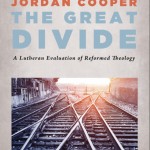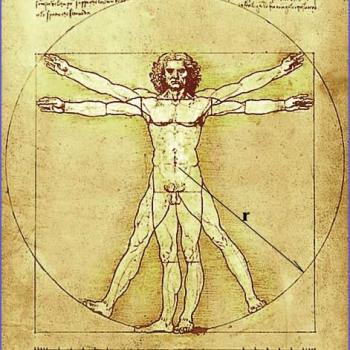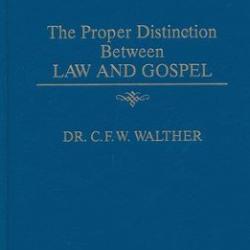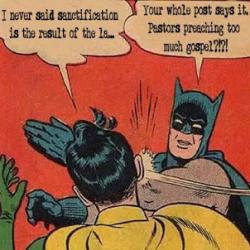
Note: this is my third post on this issue. The first one, “Wheaton Professor’s Suspension Is Not About Anti-Muslim Bigotry: a Response to Miroslav Volf and Others” (this one is shorter and quite direct), is here, and the second, “When Christians Say “Idolatry”, It Is – or Should Be – Because of Love: Another Appeal to Miroslav Volf” (this one is a bit more challenging), is here. This third post will necessarily be the most nuanced, detailed, and technical of all of these posts, even as I try to make simple this debate.
To – let’s be honest – bombastic academic theologians like Miroslav Volf who assert that Muslims and Christians worship the same God (and that Wheaton college is practicing “enmity towards Muslims”), philosopher Bill Vallicella lays down the gauntlet:
“…it is not at all obvious that Jew, Christian, and Muslim are all worshipping the same God. That, I submit, is crystal-clear. And so those who think that the question has an obvious answer are plainly wrong.
But this is not to say that Jew, Christian, and Muslim are NOT worshipping one and the same God. That is much more difficult question.
Do we all agree now?”
For Volf’s part, today he is doubling down again on Facebook, stating that “it is morally wrong of [Wheaton] to withdraw the right to teach from [a person like Larycia Alaine Hawkins]”. But I think Bill Vallicella points us in a more helpful direction, and I would like to add a distinctively Lutheran perspective to the conversation.
First of all, dealing with the political side of this question, according to Luther’s doctrine of the “two kingdoms” Christians can certainly argue for a broad-based religious freedom. The idea here is not so much based on rights – or that we all worship the same God – but that religion in general can be advantageous in the civil sphere, so long as it contributes to maintaining peace and order. This post does not really deal with this however, but focuses rather on the Christian church’s responsibility to speak faithfully regarding matters of eternal salvation – i.e., dealing with the care of men’s souls.
And here, I suggest that for the very biblically-minded Christian believer, the answer to the question as I put it in the title of this post depends on the distinction between God’s Law and Gospel, and this is true because it depends on the individual person we are talking about. I’ll explain in a moment, but first a short summary of the debate (again, it is quite technical, but I will try to make it as easily digestable as I can).
Those who say that the other Abrahamic faiths worship a different God point out that Christians worship a Triune God – One God (one “what” or nature – a Divine nature), who is three persons (three distinct “whos”, who are not simply different “masks” of the same Being)[i], and that the Son of God, the second member of the Trinity, took on human flesh and claimed on earth to be the God of the Old Testament – Yahweh/YHWH (see John 8, where He says “before Abraham was born ‘I Am’”). And if Jesus is indeed God, it is also important to note, as one Lutheran does, that the Scriptures associate the worship of other Gods with idolatry and that Satan “is cunning and calculating, this deceiver, so he puts his best foot forward…Better to coat poison with sugar.”

On the other hand, those who say that other Abrahamic faiths worship the same God point out that in the Middle East, “Allah” is, in many cases, the generic name of God. One Middle Eastern Christian, Vinoth Ramachandra, therefore argues that the answer is “Yes” and “No”. People are dealing with the same referent, but in different senses.[ii] These folks point out that Miroslav Volf is not the only person who thinks asking whether Muslims and Christians worship the same God should be explored, but that this is a question with a rich history in the church.[iii] Not all of these folks are like Edward Feser either, who thinks that believers in the Old Testament did not consciously worship a Triune God in any sense and thinks that “referring to” (in some linguistic-metaphysical sense, Frege, etc.) is necessarily the same as “worshipping.”[iv] (see for example, this excellent article)
In fairness, it is important to note that many of these philosophically-minded Christians do not want a cheap ecumenism that blurs all the distinctions – rather, the question becomes what differences in belief about God are “fundamental” enough to justify saying: “ok, now it is a different God?”
And that is a good question (even if any ardent secularists reading this may be splitting in their sides now).
First of all, thinking about this matter historically, we cannot avoid that there certainly are what we can call the “Abrahamic faiths”. Any person acting in good “leather foot journalism” fashion could establish this. But even here, looking at the matter from the broad biblical perspective of history, we could say that all religions, not just the Abrahamic ones, “refer” to the same God. Why? Well, all beliefs in some higher being developed among the children of Adam and typically want to refer, in some way, to the God who created the world (the only ones excluded here are perhaps Satanists). This, for example, was one of the things that was not so bad about the new Noah movie: the very interesting faith of Tubal-Cain.

Second however, we do want to keep in mind that not even everyone who subscribes to the core content of a particular faith necessarily has the same personal faith. It may seem likely that they do, but even if the teachings of a certain faith mitigate the truth, persons might, in spite of their faith’s official teaching, believe something different. Or, even if the “official teachings” seem to be widely held, there might still be important distinctions and nuances in individuals.
For example, one thinks about the very Jewish Mary, Zechariah, Elizabeth, baby John the Baptist, Simeon, Nathaniel and Anna – who all seem to have immediately recognized the Messiah they were waiting for from the Lord. Of course there were Jews who were fierce in their unbelief as well, and our Lord, also Jewish of course, dealt with them in a very jarring way, particularly in John 8 (giving them a law answer demanding change). Here one also thinks about the Roman centurion Cornelius, who we are told in the biblical book of Acts (chapter 10) had adopted the Jewish religion and was primed to receive the message about Jesus as the coming Messiah. Writing about this event, Martin Luther gives the impression that a) Cornelius, prior to Acts 10, did worship the same God but that b) he needed – and eagerly recognized his need – to hear the full message about Jesus Christ (a gospel answer!).[v]

So, how to look at these matters overall? I do not deny that detailed inquiry into these questions is of use, and I do not doubt that in some cases, leaving room to talk in this way (“we worship the same God”!) might be of some evangelistic use[vi] (certainly political use, for trying to keep peace). At the same time however, I suspect the reason for minimizing the differences in this fashion is to solve “the problem” of God’s fairness. How could only those who trust in Christ be saved – and not also those who start to do some real good in this life?! (see my recent post here) In drawing this conclusion, am I being unfair myself? I don’t think so – there is simply a strong desire among many in Christendom to help some people “get in” because of their good works. But as Luther said, the Creed, not the law (First Commandment, “metaphysics,” “theism”), is what sets the Christians apart from Jews, Muslims, and false Christians.[vii]
One man, writing how we might view this issue about whether or not two persons are worshipping the same God, said this:
“You may believe that John is a wicked, insufferable person. I may believe that he is utterly delightful and profoundly wise and good. Yet we both know that “John” refers to the same person, despite our contradictory assessments of his character.”
But as I pointed out there is another way of looking at it, and this is the illustration that I use with my students.
“Let’s say you and I are talking and we realize we both know the same person. How cool! Let’s say we go on thinking this is the case for a while… that is, until we start talking about the person in more detail. It is only then – after we have more information – that we realize that we actually were not talking about the same person at all.”[viii]
I could follow up by saying this though: “Now, this may not be the case every time you talk to a devout Jew or Muslim. Perhaps – just perhaps – in speaking with them you think you are finding out that they believe what you believe. Maybe they even say they don’t believe in Jesus, but when you talk to them about that, you realize their picture of Jesus is not the one described in the Bible at all, etc. etc.”
That said, notice what is happening here. If it is true that in certain contexts people of seemingly different religions really do mean the same thing when it comes to words like “prayer”, “worship” , and “God”, the blanket statement that “we all – or even all Jews, Muslims, etc. – worship the same God” would then by default not be true. This is why, I think, in general, taking an approach like I do in my first two posts on this topic is necessary.
Again, as I noted in my first post especially, John 8 is disturbing clear, and I am afraid very un-ecumenical (well, we would have to talk about what ecumenical means or should mean!). And in Acts 17, of course, Paul ends by saying that God has proven to all persons through Christ’s resurrection that this man is going to judge the world. Simply put, some are ready to hear more at this point and others are not and will not – maybe ever. And again, we must remember that Satan, ever eager to be that “angel of light”, “is cunning and calculating, this deceiver, so he puts his best foot forward…Better to coat poison with sugar.” In other words, when difficult and unfortunate situations like those at Wheaton come up (hopefully these can be addressed in the future), this is no time for a trumpet that does not give a clear call (I Cor. 14:8).

Even as we hopefully are always eager to learn something from any person we are privileged to speak with, we Christians nevertheless need to be clear about our convictions: the only way persons can be saved is by Jesus Christ – not their own goodness, for “no one is good but God alone”. We are all simply beggars showing others where the Bread [of Life] is. And this is the message we must be eager to speak to all – tailored as much as we can to where a person actually is in their beliefs on these issues! I think that all of us – even Christians with one another [ix]– need to learn how to ask one another good questions here.
How can we hold up Jesus Christ – is He not beautiful? Is He not good? Is He not mighty? Thank God Jesus is God! – and yet simultaneously refuse to make explicit that those gods who are not Him are false? That they do not lead us to the way and the truth? That they do not add to life, but rather take away from it? That the True God does not so much work through other religions, but in spite of them?
Here in wintry Minnesota, I went sledding with my boys yesterday. The three year old could not walk up the steep hill. One son said he wouldn’t help him. Another said he couldn’t help him. Only father was both good and strong enough to help. Likewise, only the Father of our Lord Jesus Christ – who refuses to be thought of apart from His Son – is strong enough to help us, to save us, from our desperate condition of bondage to sin, death, and the devil.
FIN
Images: Tubal-Cain (http://movieweb.com/noah-director-darren-aronofsky-talks-battle-over-test-screenings/) ; Volf (https://en.wikipedia.org/wiki/Miroslav_Volf)
Notes:
[i] Traditional monotheism has believed that “God” is not so much a proper name, but a descriptive term, for example “the Prime Minister” (see here). Another way to say this is that “God” is a “common noun (a sortal concept) that refers to a class of objects (with only one member…).” (see p. 56 here)
[ii] He writes “The eminent logician Gottlob Frege (1848-1925) famously drew an important distinction between the referent of a word/phrase and its sense or meaning. He took the example of the planet Venus which is, paradoxically, described as both the “Evening Star” and the “Morning Star”. The two expressions have different senses or meanings, but they have the same referent, namely the planet Venus.”
So the question posed here: What might terminological agreement between Christians and Muslims mean?
[iii] See these links, for example: https://afkimel.wordpress.com/2015/12/29/allah-son-and-holy-spirit-the-apologetics-of-oneness-and-threeness/ and this book chapter is particularly fascinating. This would be the “Islam as a Christian heresy” view. Regarding the first link, a pastor friend writes: “Semitic Christianity (Aramaic, Syriac, Arabic) likely used those trinitarian terms (not always in orthodox ways: Nestorianism, etc) prior to the emergence of Islam (the Near East look very different around 600AD), and it was then Islam’s claim that it continued, corrected, and concluded the ‘biblical’ revelation of the one true God by trying to show that Mohammed was prophesied in the OT and NT.”
[iv] This seems to be Feser’s view. Note that “referring to” requires no faith in the Gospel of Jesus Christ, while “worshipping” does. Speaking of the church’s creeds, Martin Luther wrote: “These articles of the Creed, therefore, divide and distinguish us Christians from all other people on earth. All who are outside the Christian church, whether heathen, Turks, Jews, or false Christians and hypocrites, even though they believe in and worship only the one, true God, [better: may believe in ; may call on – see here] nevertheless do not know what his attitude is toward them. They cannot be confident of his love and blessing. Therefore they remain in eternal wrath and damnation, for they do not have the Lord Christ, and, besides, they are not illuminated and blessed by the gifts of the Holy Spirit.” large catechism, 3rd article of the creed (italics mine)
[v] Martin Luther, writing about Cornelius in Acts 10, said the following: “Cornelius, Acts 10:1ff , had heard long before among the Jews of the coming Messiah, through whom he was righteous before God, and in such faith his prayers and alms were acceptable to God (as Luke calls him devout and God-fearing), and without such preceding Word and hearing could not have believed or been righteous. But St. Peter had to reveal to him that the Messiah (in whom, as one that was to come, he had hitherto believed) now had come, lest his faith concerning the coming Messiah hold him captive among the hardened and unbelieving Jews, but know that he was now to be saved by the present Messiah, and must not, with the [rabble of the] Jews deny nor persecute Him.”
[vi] Summary of a conversation from another blog: In Acts 17, the “unknown god” is not the supreme God of that pantheon. Why did Paul pick this deity rather than, e.g., Zeus? One person answers: “Well, the shrine to “the Unknown God” is too sweet an opportunity for a preacher like Paul (especially given the history of the shrine, the historical plague behind it, etc.). But following Paul does pick Zeus. The poets Paul quotes are works written about Zeus. That “we are his offspring” is from Aratus’s (d. 240 BCE) poem about Zeus (the “his” refers to Zeus in the poem), and the “in whom we live and move and have our being” is from Epimenides (6th cent. BCE) who is also writing a poem for Zeus (“They fashioned a tomb for you…but you are not dead, you live and abide forever; for in you we live and move and have our being”).” I replied: “Perhaps Paul is offering a subtle course correction here? Namely, the poet was right about what God does, but I am saying now this is not to be attributed to Zeus, but rather this unknown God….”
[vii] A pastor friend notes that “Aquinas[, in his Summa Theologica] discusses the “one God” (based on nature, reason); then he turns to the holy Trinity (based on grace, faith, above reason [but not counter to reason]). And these are not two gods; they are one and the same God”” I think that by nature – however badly nurture goes – all persons really do have knowledge that there must be a powerful divine mind, which can’t responsibly be separated from notions of personhood – responsible for the cosmos. I don’t think Paul is saying that all have a knowledge of “Judeo-Christian theism” that they suppress, but that all do have a knowledge that is at least something like this. And while we are also inclined by nature to seek God, no one apart from the Gospel seeks God as he should be sought or as he is….. What we seek by nature, apart from His grace, is a God of the Law (our grace-infused love of God as we imagine him by reason saves) and not one of the Gospel (His ultimate and ongoing message of mercy is about the rescue of sinful man in Christ Jesus).
[viii] Philosophically speaking, “Failure of reference, on the descriptivist view [see footnote 1], can occur in various ways. First, the description associated with a name fails to identify someone uniquely; it holds true for more than one person. In this case reference is ambiguous and hence unsuccessful. Second, the description is satisfied by no person, in which case the name is empty in that it doesn’t latch onto anyone. Third, the name is associated with a true description, but of the wrong person” (see p. 56 here).
[ix] In Martin Luther’s Smalcald Articles, documents to which confessional Lutherans subscribe, he says that while the Roman Catholics confess the Trinity, they don’t believe it because they officially condemn evangelical trust in the Second Person of the Trinity as their one and only Savior. This will affect how we see the issue at hand in this post. To quote a pastor friend again: “in his 2006 Regensburg lecture (para. 2-4), [Pope Benedict] marked as an important difference between Christianity and Islam not the gospel of free forgiveness in Christ, but whether conversions can be gotten by force or whether an appeal to man’s reason was needed. While that is an important point, and perhaps also an important difference between the two religions, the main and chief difference between Islam and Christianity it is definitely not!… the god of reason is not the uncontroversial commonality among all real religions… whatever Christians believe cannot just be harmoniously be added to what’s already in everybody’s mind anyway.”












